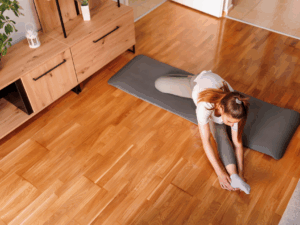6 Sleep Optimization Tips for Healthcare Travelers
As a nurse or allied health professional, you dedicate yourself to caring for others, going above and beyond to ensure their well-being. While caring for others, it’s crucial not to neglect one essential ingredient for your own well-being: sleep. Sufficient sleep is one ingredient that can make a world of difference in your life.
Think about it – when you’re well-rested, don’t you feel like you can conquer the world? Your mind is sharp, your energy is boundless, and you have the strength to face any challenge that comes your way. However, when you’re sleep-deprived, even the simplest tasks can feel like climbing a mountain.
Sleep is the foundation upon which your physical, mental, and emotional health is built – but we know it’s not always easy to make sure you’re getting enough. Long shifts, rotating schedules, and the demands of life outside of work can make it challenging to get the sleep you need. To help travel nurses and allied health travelers prioritize their sleep and enhance their health, we’re sharing some sleep optimization tips from TNAA’s Health & Wellness committee.
TNAA’s Sleep Tips for Healthcare Travelers

Make Sleep a Priority
It’s crucial to prioritize sufficient sleep for yourself, and you can start by scheduling enough sleep time. Aim for an average of 8 hours with an extra 20 minutes factored in for “fall asleep” time when you fully settle into bed. Research tells us that chronic disease rates increase when we consistently get less than seven hours of sleep, although everyone’s needs are unique.
Limit Screen Time Before Bed
You might be able to relax after a long day by mindlessly watching reality TV or scrolling your phone, but the tech we love so much can actually mess with our sleep. The blue light emitted by electronic devices such as computers, TVs, and smartphones can disrupt our sleep-wake cycle. To give yourself the best chance at a good night’s rest, switch off screens at least 90 minutes before bed. This helps your body produce melatonin, the hormone that regulates sleep.
Treat Yourself to a Wind-Down Routine
You deserve some “me time” before bed, right? Creating a soothing wind-down routine can work wonders as it signals to your body that it’s time to relax and prepare for sleep. Your routine might include switching off blue and bright lights for more calming red-orange lights, taking a magnesium salts bath or a shower to lower your body temperature, or engaging in relaxing activities, like meditation, reading with low light, listening to soft music, or gentle stretching/yoga. Whatever you choose for your routine, this dedicated time will help you unwind and prepare for a restful night’s sleep. That way, you have plenty of energy for your off-day adventures or the patience to handle whatever the hospital has for your shift.
Regulate Meal Timing
Believe it or not, when and what you eat can affect your sleep. To optimize your slumber and wake up feeling refreshed, it’s essential to be mindful of your eating patterns, especially in the hours leading up to bedtime. One key recommendation to promote better sleep is to avoid eating or drinking alcohol within three hours of going to bed. When consuming food close to bedtime, bodies shift their focus to digestion. This process can lead to discomfort, heartburn, or indigestion, making it harder to fall or stay asleep throughout the night. By allowing ample time for digestion before lying down, bodies have the opportunity to process the food, reducing the likelihood of sleep disruptions.
Exercise and Hydrate During the Day
Want to sleep like a champ? Get moving during the day! Regular exercise not only boosts your overall health but also enhances the quality of your sleep.
Also, don’t forget to keep yourself hydrated throughout the day. Dehydration can disrupt your sleep, so make sure to keep your water handy for sips throughout the day.
Be Aware of Sleep Disruptors
There are a few culprits that can mess with your sleep patterns and impact your mental health. We all love our morning coffee, but caffeine can affect sleep quality even if consumed earlier in the day. To play it safe, avoid caffeine after noon. Alcohol can mess with your REM sleep, so it’s best to avoid it for at least three hours before bedtime. And let’s not forget about nicotine—it impairs sleep too, so it’s wise to avoid it altogether.
Travel With TNAA
By putting these sleep optimization tips into action, you’ll be amazed at the positive impact on your sleep quality, mental health, and overall well-being. Prioritizing sleep is a game-changer for achieving optimal mental health and staying on top of everything in your life and healthcare career.
Plus, when you travel with TNAA, you are traveling with an agency that provides you full support throughout your entire assignment, helping eliminate headaches like housing, compliance, and figuring out benefits. All you have to do is pack your bags and decide where you’re going.
Ready to get started? Check out our available healthcare travel jobs and apply today!







